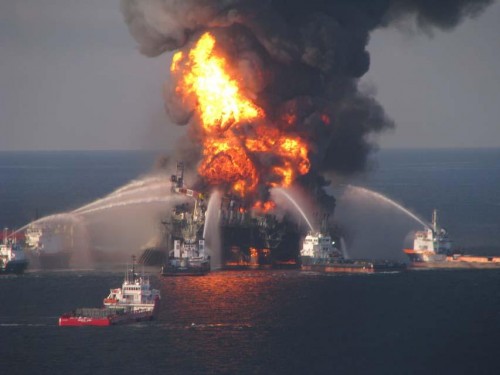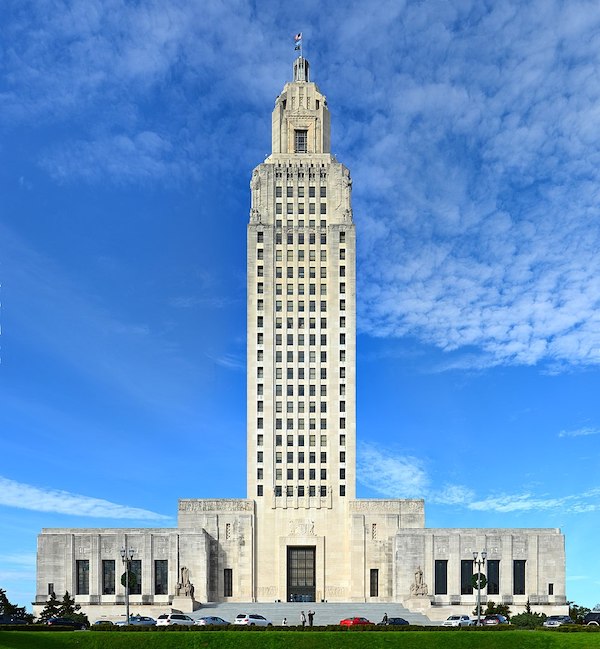
Ricky Murphy
September 27, 2010Nicholls State on life support?
September 29, 2010Oil and gas industry executives predict “confusing and subjective” permit regulations will delay deepwater drilling even further in the Gulf of Mexico once the ban is lifted, though regulators say the excessive elapse in time is necessary to ensure safety.
The merits of the moratorium are being debated in the courtroom, but even if the ban on deepwater offshore drilling is lifted prior to the scheduled date of Nov. 30, the oil and gas industry does not expect to resume drilling because of what they have seen in the enhanced shallow-water drilling permit process, which is conducted by the Bureau of Ocean Energy Management, Regulation and Enforcement (BOEM).
“I’m confident the moratorium is going to be lifted but I’m very doubtful that we’ll go back to work any time in the near future,” Louisiana Oil and Gas Association President Don Briggs said.
Typically, the industry is granted approximately 60 shallow-water drilling permits in a four-month span, Briggs said, but only five have been granted for new wells since May.
Eight new well permits are pending for waters less than 500 feet deep, according to the BOEM website. Of the pending shallow-water permits, five were applied for before June 8.
“The shallow-water permits that we are getting are trickling out,” Briggs said. “If we can’t get permits in shallow water, how the hell are we going to get them in deep water?”
The delays are in place in order to ensure safety and proper compliance in the permit process, according to BOEM Director Michael R. Bromwich.
“I understand the frustration that people feel because we are not able to review and approve applications as expeditiously as we have in the past,” Bromwich said at a public forum on offshore drilling in Lafayette. “But the central fact is that it has taken time to submit and verify the additional required information.
“We will not approve applications until and unless they fully comply with the new requirements. That will not make everyone happy, but it is the right way to proceed.”
All well permits must satisfy the requirements laid out in Notice to Lessees and Operators (NTL) 2010-05, and new wells must comply with NTL 2010-06. Both notices included heightened safety regulations.
Jon Jepperson, executive vice president of the Apache Corporation, said NTL-06 is causing delays in the permit approval process because applicants still aren’t sure what information is needed.
“It is a very slow process,” Jepperson said. “They are requesting a very large amount of information. It takes weeks to gather the information in a lot of cases, and once we supply it, we are not getting anything back.”
NTL-06 requires hypothetical worst-case discharge calculations for a blowout scenario, including a flow-rate estimate, total volume and maximum duration of a blowout, and the plan to nullify and avoid the blowout.
Louisiana Mid-Continent Oil and Gas Association President Chris John said the request for companies to determine a worst-case scenario is subjective and confusing.
“That’s been a real contentious part of the legislation because many of our companies that have filed and answered those questions, but they have not been to the satisfaction to the bureaucrats who are not approving these,” John said.
Because new safety compliance regulations have not yet been published for deepwater drilling, oil companies cannot apply for permits in advance of the moratorium possibly being lifted. And until the safety regulations are announced, they are not even sure what information they should be gathering and sending to BOEM.
“As for deepwater, the Director has held eight public forums to collect information and views about deepwater drilling safety reforms, well containment, and oil spill response,” BOEM spokeswoman Caryl Fagot said in an e-mail. “Director Bromwich will consider this information and comments received from the public in evaluating whether to recommend any modifications to the scope or duration of the deepwater drilling suspensions announced by Interior Secretary Ken Salazar on July 12, 2010.”
The industry executives are in agreement on the short-term problems post-moratorium, but John said he is optimistic about the long-term future for drilling in the Gulf of Mexico. He said there have been three lease sales worth at least $1 billion in the last two-and-a-half years.
“I think the long term, the future looks bright in the Gulf because the need for energy in this country and around the world will continue to grow, and because of investments from lease sales,” John said.
BP’s Deepwater Horizon explosion and subsequent spill has federal officials re-examining how the oil and gas industry is regulated. COURTESY PHOTO










